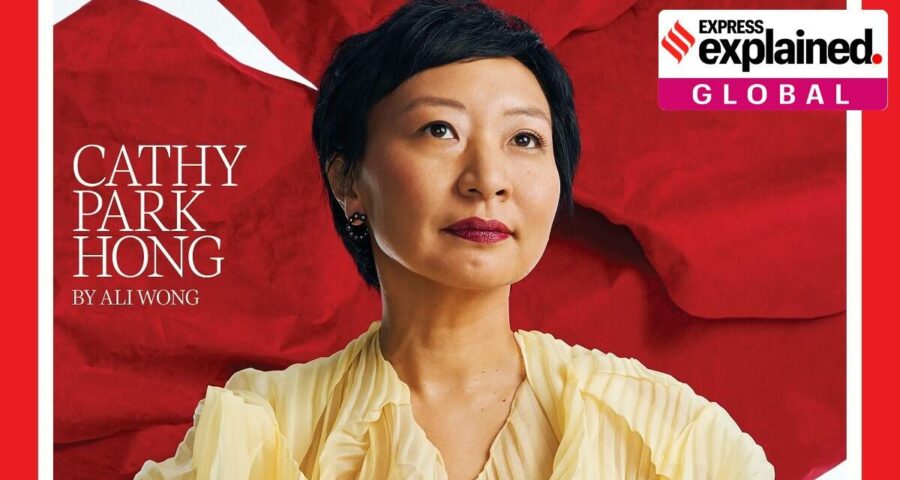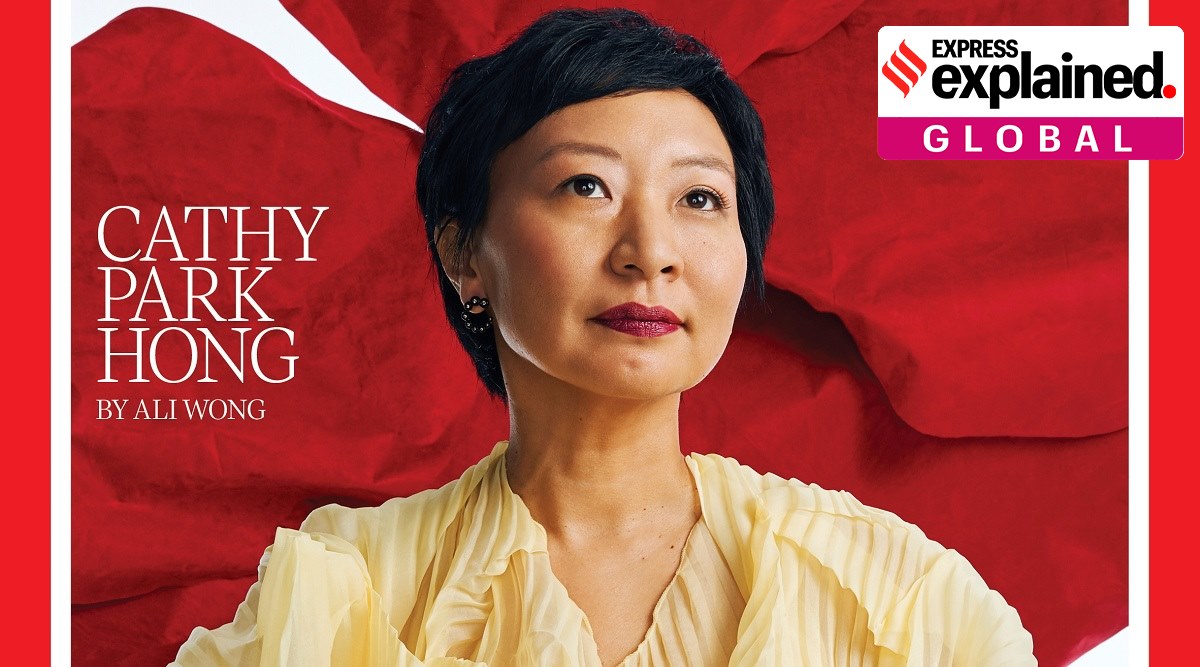The Korean-American poet’s first book of essays, Minor Feelings, published last year, threw open a conversation on the discrimination faced by Asian Americans in the US.
“Poets, especially Asian American female poets, don’t dream about being on the Time 100 List. But it happened and I’m on the cover,” tweeted Cathy Park Hong on September 16, about her inclusion in the global celebrities in the Time magazine’s annual list of 100 most influential people of the year, published this week. The 45-year-old Korean-American poet’s searing exploration of race and minority identity in a collection of essays published last year evoked a conversation on the experiences of people of colour in the US, especially at a time when the pandemic had exacerbated entrenched discrimination. “I annotated the hell out of Minor Feelings — it’s the kind of book you want to dog-ear and underline… I felt so seen that I couldn’t believe that this book existed,” writes American comedian, writer and actor Ali Wong in her profile of Hong for the Time magazine.
Hong’s Poetry
A faculty in the department of English at Rutgers University, Newark, Cathy Park Hong first burst onto the literary scene in 2002 with her poetry collection, Translating Mo’um (Hanging Loose Press), that won her a Pushcart Prize, an annual literary prize awarded to the best in indie publishing. Since then, Hong has published two other volumes — Dance Dance Revolution (2007, WW Norton Norton), that won the Barnard Women Poets Prize, a win personally endorsed by feminist poetic icon, Adrienne Rich, and Engine Empire (2013, WW Norton). A sense of alienation is pervasive in her poetry, in which Hong explores the duality of her identity. In the poem ‘A Wreath of Hummingbirds‘ from Engine Empire, Hong, who also serves as the poetry editor for The New Republic magazine, writes, “I suffer a different kind of loneliness./ In the trilling ringtones of singing/ wrens, cries of babies and ballad medleys,/ my ears, already inured by buds,/ turn to brass.” In Dance Dance Revolution, Hong’s poems assume the form of transcriptions of imaginary interviews conducted by the narrator in a fictional way station called Desert, where the flux of visitors births a language that draws from over 300 dialects and other language sources. In 2018, Hong won the prestigious Windham-Campbell Prize. She is the recipient of several other awards including a Guggenheim Fellowship (2015).
https://youtube.com/watch?v=LTUyBC0OO9s%3Fversion%3D3%26%23038%3Brel%3D1%26%23038%3Bshowsearch%3D0%26%23038%3Bshowinfo%3D1%26%23038%3Biv_load_policy%3D1%26%23038%3Bfs%3D1%26%23038%3Bhl%3Den-US%26%23038%3Bautohide%3D2%26%23038%3Bwmode%3Dtransparent
Minor Feelings: A Reckoning on Race and the Asian Condition
“It is an unique condition that is distinctly Asian in that some of us are economically doing better than any other minority group but we barely exist anywhere in the public eye,” writes Hong in an essay in Minor Feelings: A Reckoning on Race and the Asian Condition (Profile Books, Rs 499). Published last year, in the early days of the global pandemic, the book is a collection of seven essays that were sparked off after watching the standup comedian and actor Richard Pryor speak about race on stage.
Part memoir, part interrogation, Minor Feelings is Hong’s first attempt at non-fiction that examines racial trauma and living on the margins. As a member of a community often held up as an immigrant success story, she writes of having to contend with perceptions about Asian people in America and struggling to find herself mirrored in them. In the essay “Stand Up”, Hong describes “minor feelings” as the “racialised range of emotions that are negative, dysphoric, and therefore untelegenic” and so homogenised that it refuses to recognise individual experiences. Later, in an interview with The Guardian, Hong spoke of how the COVID-19 pandemic had deepened the racial divide in the US. The book, which won the National Book Critics Circle Award in the autobiography category, was also a finalist at this year’s Pulitzer Prize in the general non-fiction category.
Background
The daughter of immigrants, Hong grew up in Los Angeles, where her father worked in insurance before starting a warehouse business that was successful enough to ensure a private education for Hong. She studied at Oberlin College, Ohio, and earned an MFA from the famed Iowa Writers Workshop. In the opening essay in Minor Feelings, “United”, Hong writes on why she had always shied away from writing about her racial experience in a way that set her up as an “anthropological experience” for readers. It was the birth of her daughter and her endeavour to make her child feel more at ease with the twin identities she inherited that finally prompted Hong to write the book. Apart from Hong, sci-fi writer NK Jemisin is another literary figure to feature in Time’s 2021 list.
Source: Read Full Article


